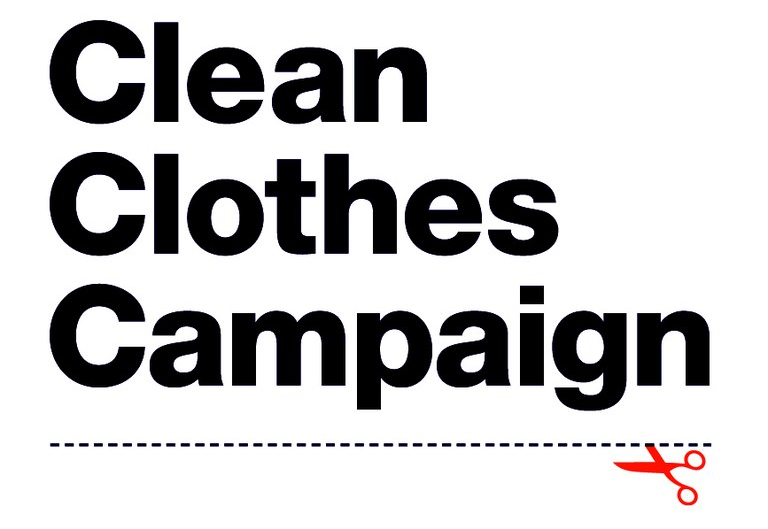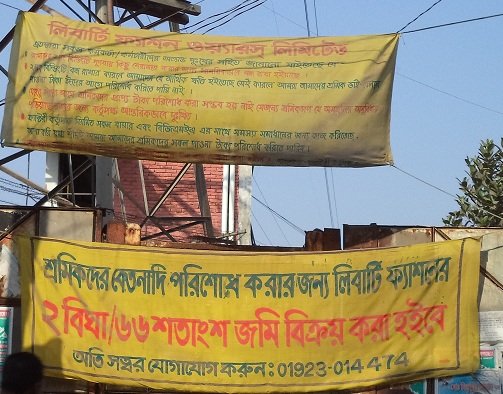Units of Liberty Fashion Wears closed
The Mirpur unit was temporarily closed as of April 2014. Management blamed the closure on low work orders, and said that the facilities would be reopened in two months. During this period of closure the workers' payment should continue. But the factory management has not taken any steps to reopen the factory and pay the workers.
"We urge factory owners to take the positive opportunity offered to them to make their factories safe, and expect all brands to ensure that exits are carried out responsibly and workers receive their full legal entitlements." - Sam Maher, Labour Behind the Label
The Savar unit also remains closed, and workers received only 2000 Taka (about €20) following the closure dispute. They received no further compensation. Many of the workers have begun working at a different factory.
Earlier we published:
Factory inspection: threat of collapse
Inspections carried out in June 2013 revealed that the building of Liberty Fashion Wears in Dhaka was at risk of collapse, and the lives of 5,000 workers were at risk. Immediate evacuation of the workers and restoration of the building were necessary. After the failure of the owner to make the much-needed repairs, several brands pulled out of the factory.
The inspection, carried out by several brands that had joined the Bangladesh Accord on Fire and Building Safety in May, found cracks in the walls and fragile structures with a risk of collapse.
An emergency working group was established with representatives from fashion brands involved – most of them Accord signatories – Accord staff, the Ethical Trading Initiative (ETI), several trade unions and international labour rights groups, including the Clean Clothes Campaign (CCC).
Evacuation
The owner of the factory was persuaded to stop production at the building at risk, and evacuate the premises until the problems were fixed. Several brands that were sourcing from the factory provided financial support to the owner to enable him to have sufficient cash flow to pay the wages of the workers during the renovation. The continuation of payment to workers is one of the provisions of the Accord. Despite this, the Liberty Fashion workers remained unpaid. The renovation was expected to take a matter of weeks, but several months after the closure the factory management had still not undertaken the necessary repairs.
In the meantime, several buyers had reduced or ended production, while others still had ongoing orders but were expecting to pull out. CCC urged the brands to ensure that an exit, if necessary, would be carried out responsibly and that workers would receive their legal entitlements in full. The owner was given an ultimatum regarding the repairs and the outstanding wages, which unfortunately was not met. Accord staff have focused on finding a solution to cover the workers’ outstanding wages, overtime and severance pay. As of March 2014 these issues remain unresolved.
See also:
Bangladesh Accord press release on Liberty Fashion Wears, October 2013
The Guardian - Owner of closed Bangladesh clothing factory denies building unsafe
Reuters - Tesco stops sourcing from a Bangladesh factory due to safety concerns

